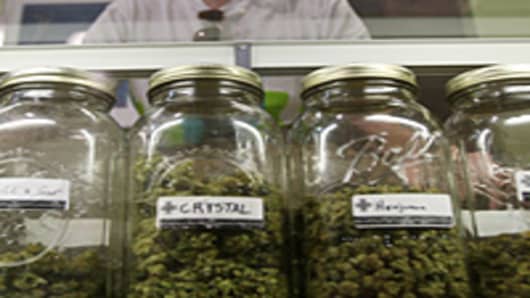To date, Stevens says the company has invested more than $270,000 to get the business up and running. He calls the issuance of the grow permit "a good faith gesture," but says he would still like the state to commit to a hard start date for patient sales.
Greenleaf is one of six dispensaries currently slated to operate in the state, but is the furthest along in terms of permits. Compassionate Care Foundation was recently given approval in the town of Egg Harbor — about 20 minutes from Atlantic City — but is still awaiting state approval. Four other non-profits are looking to secure sites for their storefronts.
While the six non-profit dispensary operators have been selected by the state, New Jersey's Compassionate Use Medical Marijuana Act does not set any limits on how many dispensaries may be opened in total. Rather, it only stipulates that there be "at least two each in the northern, central, and southern regions of the State." State officials say they are currently focusing on the non-profit dispensaries — and will turn their attention to accepting applications for for-profit facilities after those are up and running.
In the case of Greenleaf, though, New Jersey notes that the start date is based on Greenleaf's compliance with state regulations.
"The Department is committed to ensuring that medicinal marijuana is safely and securely available to patients as quickly as possible," state Health Commissioner Mary E. O’Dowd said in a statement. "[This] action authorizes Greenleaf to grow medicinal marijuana — which generally takes 3-4 months — so that once a permit for its dispensary is issued, medicinal marijuana will be available without delay."
New Jersey officials say they are aware of the criticisms that have come with the medical marijuana program's long delay, but say delay was necessary to create a system that prevented abuse and that would have opened a gateway for just about anyone to obtain the drug.
"We have seen what happens in other states with loose controls, where marijuana is grown without supervision and distributed 'legally' to large numbers of people who would never qualify in New Jersey to receive it," says Donna Leusner, spokeswoman for the state Department of Health and Senior Services. "Ours is a purely medically based program, and we would not allow our program to be the mockery that other programs in other states have become."
Initially, 100 doctors have signed on to participate in the program (though that number might increase by the time sales begin to patients). A patient registry is in the final stage of development and is expected to open in several weeks.
New Jersey officials say they do not have an estimate of how many people will sign up and qualify, but Greenleaf expects there will be 3,000 to 6,000 patients statewide over the next two years, based on its modeling from Maine and New Mexico programs, those closest in scope to New Jersey's.
The financial benefit to the state is murkier. The first two dispensaries in a particular region (northern, central and southern New Jersey) are required to be nonprofit. Subsequent dispensaries can be for-profit, according to the state treasury department.


